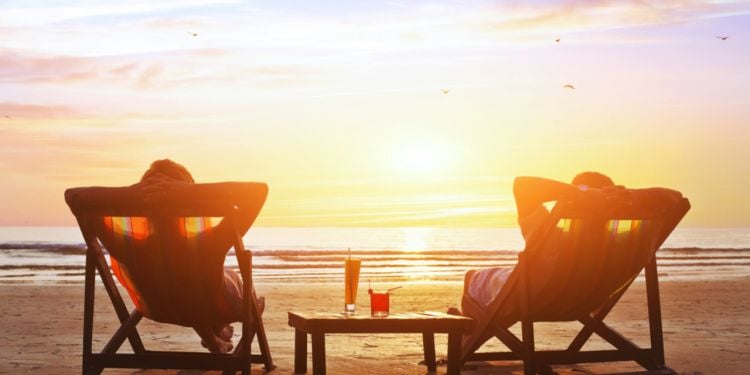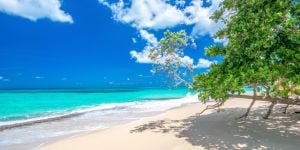
Many retirees, or those reaching retirement age, like to visit the Dominican Republic and end up falling in love with the country and the people, leading to them wanting to move there. Below is some information to help you make the decision to retire to the country and to help you better understand the regulations.
Over the years, the Dominican Republic has proved to be an ideal destination for expatriates worldwide for several reasons. These include the warm and pleasant climate, the variety of landscapes, the fabulous beaches, and the friendly local people. In addition, it offers primarily political and economic stability, a reasonable cost of living, and good healthcare in the major cities.
The legal aspects of retirement in the DR
The law governing retirement is Law 171-07, which lays down the requirements for receiving benefits related to retirement in the Dominican Republic.
The immigration issues have changed dramatically over the last few years, and currently, in order to retire in the DR, you need to have residency in the country. The process of achieving residency begins in your home country at the Dominican Republic consulate, where you have to provide a range of paperwork to obtain a residency visa. Complete information on the documentation required can be found here.
As a retiree, in order to qualify for the residency visa and subsequent residency card, which is obtainable no more than 60 days after the issue of the visa at the migration office in Santo Domingo, a retiree must receive a monthly pension of a minimum of USD 1,500, or rental/investment income of USD 2,000 a month.
Once you can prove you have that amount, then the retirement residency comes with certain benefits under Law 171-07.
Benefits of retiring in the Dominican Republic
- Permanent residency in 45 days from when you submit your documentation to the migration office in Santo Domingo;
- Qualify for citizenship within 6 months of being issued a residency card;
- Exemption on property purchase tax;
- 50% exemption on annual property tax;
- Exemption of taxes on income earned from pension;
- Exemption from taxes levied on the payment of dividends and interest earned;
- Exemption of taxes for the import of home furnishings and personal property;
- Partial exemption of vehicle taxes for the import of a vehicle from the home country.
Should you decide not to become a resident, you can enter the country with simply a USD10 tourist card, which is valid for 30 days. If you stay after that length of time, you will have to pay an overstay fine. However, without residency, you may find it hard to obtain contracts for electricity, cell phones, internet, and a bank account, and your foreign driving license will only be valid for 3 months. You cannot obtain a Dominican driving license without a Dominican identity card, called a cedula, which you receive along with your residency card.
Other advantages of retiring in the Dominican Republic
The cost of living in the Dominican Republic is relatively low compared to that of many European and North American countries, especially if you use local produce rather than imported goods. Moreover, the country remains very accessible worldwide thanks to its seven international airports. The climate is lovely, with warm sunshine all year long, even in the rainy season, where it rarely rains for long. In addition, healthcare is excellent in the major cities and is considerably cheaper than in those countries without free healthcare. Health insurance can be obtained locally for only around USD 100 per 3 months, although it can be harder to get initially for those over 65 years of age.
Things to do with your new freedom in the DR
The Dominican Republic did not earn its world-famous recognition as one of the best destinations in the Caribbean for nothing! It definitely has eye-catching beaches that make your stress melt away, so it's a no-brainer that some might want to spend their precious and well-deserved time of retirement in a natural tropical paradise – especially many US citizens, as it's just a quick flight away from their home country, which makes it easier to stay in touch with the rest of the family.
The hotspots amongst expats and retirees are two coasts named Las Terrenas and Cabarete. Here, you can meet people from all over the world and make new connections. Also, it's the perfect place to spend your days and enjoy the best amenities of the DR, like restaurants, beach clubs, shopping occasions, and more.
Enjoy the most beautiful beaches
This is the number one reason why people first visit and later fall in love with the Dominican Republic – its beaches. There is hardly any competition for them. One couldn't ask for more: crystal clear water and white sandy beaches. The best thing is that you can enjoy them all year round! The Dominican Republic is blessed with a tropical climate that only consists of two seasons: rain and dry seasons.
Living here, you can take your daily morning strolls on the beach with your loved one, perhaps your dog, and start your day relaxed and with zero stress. If you prefer sunsets over sunrise, there are plenty of restaurants and bars where you can sip your cocktail and have an exquisite dinner to end the day. If you're looking for some adventures, say no more! The beach is one of the best spots to get active and out of your prior daily office routine!
The area around Cabarete is well-known for kitesurfing and board surfing.
Find yourself a private teacher and start a regular practice to keep moving. Also, you can find one of the most beautiful underwater life in the Dominican Republic, which makes it a prestigious spot for scuba diving and snorkeling. These activities make the DR also the perfect place to welcome your family members for the holidays!
Discover the mountains
The Dominican Republic has been blessed with not only its pristine beaches but also some mountainous terrains that will allow you to explore the country's wilder side. You can either choose just to follow a path along the lush tropical forest or hike a trail that might lead you to a waterfall or one of their many caves hidden in the jungle. There is also the possibility of discovering this part of the DR while horseback riding, creating the perfect connection between you and flora and fauna.
A trip to this area will also give you a nice contrast to the daily beach life – so you won't get tired of it (just kidding, who could ever get tired of that).
Learn Spanish
The language of the Dominican Republic is Spanish, and everything is conducted in Spanish, including all of the contracts and government websites. You will probably be able to manage with “Spanglish” in more touristy areas, but only a few people speak English once you leave them.
If you really want to connect with local people, learning their language is the way to go! You will see that they will appreciate your effort a lot and make it easier for you to become a part of their culture, and this is probably your ultimate goal when moving to another country so you can spend the rest of your life there.
Of course, it helps a lot to start practicing Spanish even before moving to the Dominican Republic. If you haven't had the chance to do so, there are plenty of ways to learn a language these days – online courses like Udemy.com, apps like Duolingo, or hiring your own private teacher.
You can also find language schools, many of them in bigger cities, where you can get in touch with other expats to share your learning path – this makes it even more fun and can lead to new friends and connections!
What type of learning you'll be choosing at the end is up to you and is mostly a question of preference.
Where to live
The country is enormous for a Caribbean Island, and it takes a while to get from one place to another. Most people who come here to work settle in the capital city of Santo Domingo or Santiago, the second-largest city. On the other hand, those who do not have to work, such as retirees, have many more excellent choices in terms of where to live in the DR. You will need to decide if you want a beach or mountains if you need access to international supermarkets, cultural activities, restaurants if you want to be close to an international airport if you have hobbies such as diving, golf, or kiteboarding, and if you're going to live in an expat community.
The main expatriate areas are in the North (Puerto Plata, Sosúa, and Cabarete), in the Northeast (Las Terrenas, Samaná, and Las Galeras), and in the East (Punta Cana and Bávaro). There are other smaller expat enclaves in Juan Dolio in the South and Jarabacoa in the central mountains.
Accommodation in the Dominican Republic
Once you decide to move, it is best to rent first before buying property in the Dominican Republic. This is for a whole variety of reasons: to check if you really want to live in the country and also to make sure you have chosen the right area to live in. It also gives you a chance to travel around a little and look at different regions. In addition, you will have plenty of time to check out other properties before deciding to buy. Be aware that when you rent, you will often have to pay a three-month deposit, and it is usually the person who rents, not the landlord, who is responsible for repairs and may also be responsible for condo or management fees. Make sure you get a Spanish speaker to check any rental contract before signing it.
Safety in the DR
While the DR is a lovely country with many perks for expats to live in, there is also a different side that people should be aware of. It is a developing country, and as such, some issues like crime, robbery, etc., are present. There has been a tourist police installed to deal with assaults on foreigners. Also, they adopted a 911 emergency call system that works fine throughout most parts of the country. You will find a more substantial presence of police forces in areas with a lot of resorts and, therefore, tourists.
If safety is one of your main priorities, then you should definitely get info about the safest zones and maybe consider a residence within a gated community.
Important info and tips:
- The electricity in the Dominican Republic is not very reliable. The country is divided into four areas: A, B, C, and D. Those in an A area have more or less 24 hours of power, and those in a D area only have 8 to 10 hours a day. Check out which area you are in before renting or buying, and budget for an inverter or generator for times when there is no electricity. Even if you are in an A area, the electricity can go out for several hours, especially during storms or hurricanes;
- Driving in the Dominican Republic is hazardous; in fact, it has the highest rate of road deaths globally. It is not wise to drive at night and always watch out for motorbikes, which are abundant;
- Finding a financial advisor might be a good idea if you can afford it so that you can move your assets hassle-free and safely to your new home;
- Before really considering a place you want to spend your retirement, make sure you know the amount of your social security payment and check your assets so you know where you stand.
Useful links and apps:
Dominican Tourism App (Apple)
Spanish online courses and apps:
Restaurants:
Tourism police:
Phone numbers: 809-222-2026 & 809-222-2123
Email: contactos@politur
Tourism Police App (PlayStore)
We do our best to provide accurate and up to date information. However, if you have noticed any inaccuracies in this article, please let us know in the comments section below.








